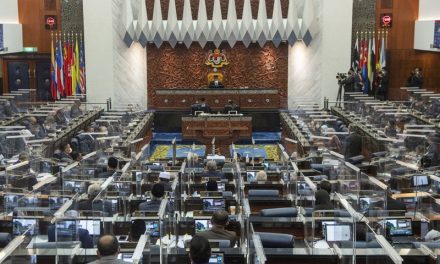HR specialist Arulkumar Singaraveloo says employers must adapt to evolving nature of workforce
PETALING JAYA | Malaysian employers, especially those in the manufacturing sector, should consider a four-day work week and three-shift work days to attract local workers and reduce reliance on migrants, a labour expert said.
Malaysia HR Forum & Social Compliance Malaysia co-founder Arulkumar Singaraveloo told The Vibes that the proposed shifts on working arrangements are needed to adapt to the evolving nature of the workforce.
For example, he said many companies are now hiring migrants with a “zero-cost” recruitment policy, meaning that the migrants are free from debt bondage, or financial obligations to recruiters.
He said the three-shift work days instead of two shifts would help with the efficiency of the production line, and could potentially save costs as it reduces the requirement for workers to do overtime work.
More importantly, he said companies can avoid allegations of forced labour as the workers would be put on shift rotations accordingly.
“Generally, local workers don’t prefer long work hours due to changing socio-economic factors.
“At the same time, the migrant workers in companies with ‘zero-cost recruitment’ policies – who are also free from debt – are not keen to work overtime anymore, unlike in the past,” said the labour expert during his recent one-day workshop titled Prevention & Elimination of Forced Labour in Malaysia.
The series of workshops was held in several locations in May, including Penang, Kamunting in Perak, Kuala Lumpur and Johor Baru.
The discussions are aimed at helping Malaysian exporters in manufacturing and plantation industries with markets in the European Union, the United States, and Canada have an in-depth understanding of the International Labour Organisation’s (ILO) 11 forced labour indicators and how to eliminate these practices and avoid sanctions.
Arulkumar added that with the current increase in the minimum wage from RM1,200 to RM1,500 and the proposed amendment to the Employment Act to reduce basic working hours from 48 hours to 45 hours per week, local workers in this pay bracket can see their incomes increase by 35%.
The increase in salaries could result in local workers focusing less on overtime work, while generating higher take-home salaries.
“Many may work the basic hours for safety net purposes and consider gig jobs to supplement their income, which could be more lucrative,” he said.
“As such, moving to a three-shift pattern or a four-day work week, two days off scheduling may be a win-win situation for both parties. This could be an approach for companies to attract and retain local blue-collar workers and slowly reduce dependency on migrant workers.”
Ethical recruitment
The consultant also pointed out that without “zero-cost recruitment” policies, many migrants would be required to pay thousands to their domestic recruiters in order to be hired in Malaysia.
For instance, Bangladeshi nationals have to fork out between RM18,000 and RM20,000 for this purpose, with funds raised from loans.
The labour advisor noticed that such is due to the existence of multiple layers of employment agents in the migrants’ country of origin.
He observed that sometimes, the number of sub-agents and outsourced recruiters could reach up to 10 layers, with every layer taking a cut from the recruitment fee at every level.
This leads to employers in Malaysia being on the receiving end of forced labour accusations, seeing that they are the “principal employer” who had sought the workers in the first place.
“In numerous research and reports, it is found that the cost of recruitment fees ballooned due to the use of multiple sub-agents.
“In the ethical recruitment framework, it is suggested to either eliminate the use of sub-agents or keep the use of sub-agents to a minimum,” advised Arulkumar.
Furthermore, he stressed that companies should identify reliable and capable agents through their tender process.
They must then ensure these agents, who are eventually appointed, are able to deliver results without the use of sub-agents, or reduce the layers of sub-agents in countries where the use of sub-agents is allowed.
For example, he pointed out one successful method used by a local company is the introduction of the employee referral programme – to get existing migrant workers to refer their family and friends from their home country.
“This way, the company achieves multiple benefits, namely a minimal recruitment fee, higher employee engagement, transparent recruitment process, and minimal reliance on recruitment agents.”









